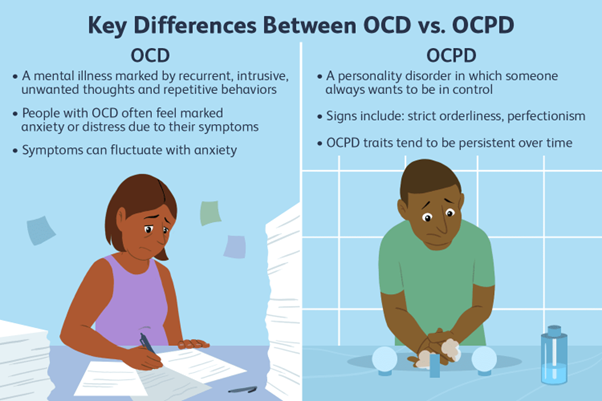A nurse is assessing a client who has obsessive-compulsive personality disorder. Which of the following findings should the nurse expect?
Goal-oriented
Provocative behaviour
Lack of empathy
Lability
The Correct Answer is A
Choice A reason:
Goal – oriented is the correct answer. Obsessive-compulsive personality disorder (OCPD) is a personality disorder characterized by a pattern of preoccupation with orderliness, perfectionism, and control. Individuals with OCPD tend to be highly organized, detail-oriented, and focused on achieving their goals. They often set strict standards for themselves and others and are driven by a strong need for perfection in all aspects of their lives.
Choice B reason
Provocative behaviour is not a characteristic commonly associated with obsessive-compulsive personality disorder (OCPD). In fact, individuals with OCPD tend to be more reserved, cautious, and serious in their interactions with others.
Choice C reason:
Lack of empathy While individuals with OCPD may struggle with interpersonal relationships due to their rigid standards and expectations, they typically do not lack empathy. They might find it challenging to understand and relate to emotions or perspectives that do not align with their own, but this is different from a complete lack of empathy, which is more commonly seen in certain other personality disorders.
Choice D reason.
Lability refers to emotional instability or rapid and extreme shifts in emotions. This is not a typical feature of obsessive-compulsive personality disorder (OCPD). Individuals with OCPD tend to be emotionally restrained and might have difficulty expressing emotions, rather than experiencing emotional lability.

Nursing Test Bank
Naxlex Comprehensive Predictor Exams
Related Questions
Correct Answer is B
Explanation
A. Elevate the right leg above heart level. This is contraindicated for the adolescent because elevating the leg above heart level can increase blood pressure in the injured area and worsen bleeding and swelling.
B. Prepare the adolescent for surgery. This is anticipated for the adolescent because they have an open fracture with bone displacement, which requires surgical intervention to reduce the risk of infection and complications.
C. Remove the splint. This is contraindicated for the adolescent because removing the splint can cause further damage to the bone and soft tissues and increase pain and bleeding.
D. Apply ice to the affected extremity. This is contraindicated for the adolescent because applying ice can decrease blood flow to the injured area and impair healing and sensation.
Correct Answer is B, A, D, C
Explanation
B. Inspection is the first step in an abdominal assessment because it allows the nurse to observe the shape, size, symmetry, contour, and movement of the abdomen. Inspection also helps to identify any abnormalities such as scars, lesions, masses, or distension.
A. Auscultation is the second step in an abdominal assessment because it allows the nurse to listen to the bowel sounds and vascular sounds of the abdomen. Auscultation should be performed before palpation or apercussion because these maneuvers could alter the sounds.
D. Percussion is the third step in an abdominal assessment because it allows the nurse to elicit sounds from different organs and structures in the abdomen. Percussion helps to determine the size, location, density, and consistency of the organs and to detect any fluid or air accumulation.
C. Palpation is the last step in an abdominal assessment because it allows the nurse to feel the texture, temperature, tenderness, and masses of the abdomen. Palpation should be performed gently and carefully to avoid causing pain or injury to the client.
Whether you are a student looking to ace your exams or a practicing nurse seeking to enhance your expertise , our nursing education contents will empower you with the confidence and competence to make a difference in the lives of patients and become a respected leader in the healthcare field.
Visit Naxlex, invest in your future and unlock endless possibilities with our unparalleled nursing education contents today
Report Wrong Answer on the Current Question
Do you disagree with the answer? If yes, what is your expected answer? Explain.
Kindly be descriptive with the issue you are facing.
